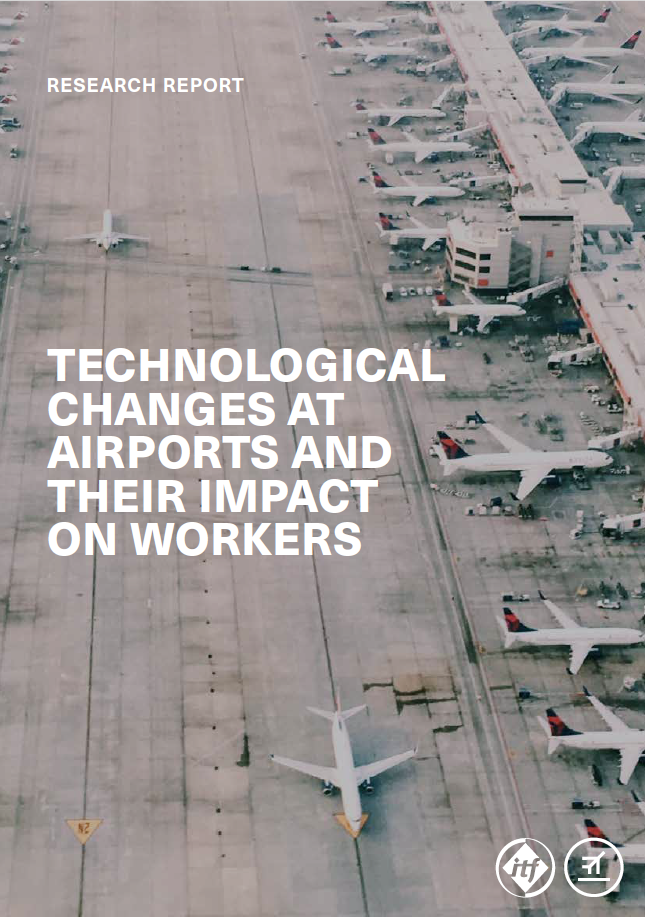Aviation unions call for fair play as new airport tech threatens jobs and safety
July 30, 2024
The International Transport Workers’ Federation (ITF) has released a groundbreaking report entitled “Technological Changes at Airports and Their Impact on Workers,” detailing the profound effects of new technology on airport employees worldwide. Commissioned by the ITF and prepared by Georgia Montague-Nelson of the Global Labour Institute, Manchester, the report underscores the urgent need for a collaborative approach in managing technological transformations in the aviation industry.
As airports around the globe adopt advanced digital tools and automation to enhance efficiency and reduce costs, the impact on workers has been significant. The report reveals that technological advancements are most affecting roles in security operations, passenger handling, and baggage handling. While these innovations have the potential to ease workloads and improve occupational health and safety, they are often implemented without adequate consideration of the negative consequences for workers.
Key findings from in-depth interviews, focus group discussions at three airports, and an online survey of union representatives reveal a disturbing trend: companies are increasingly relying on natural workforce turnover and deliberate understaffing to introduce new technologies. This practice has led to intensified workloads and heightened physical and mental health risks for workers. Moreover, there has been a rise in incidents of aggression from passengers, exacerbated by staff shortages and malfunctioning technology.
The report also highlights the growing use of technology for monitoring and surveilling workers, resulting in more hierarchical management structures and infringements on workers’ privacy. This, coupled with concerns about declining job satisfaction, poor working conditions, and inadequate training and skills development, poses serious challenges to workforce recruitment and retention in the industry.
Despite the clear implications for workers, the report notes a significant lack of meaningful engagement with trade unions by airport operators and employers. While there are some positive examples of collaboration, effective and implementable language remains difficult to achieve in collective agreements. The study emphasises the critical importance of a unified approach involving all key stakeholders, particularly trade unions, in the introduction of new technology. It advocates for labour impact assessments, equality and risk assessments, and commitments to job security, skills development, and equal access to quality technology.
ITF Civil Aviation Section Secretary, Gabriel Mocho Rodriguez, expressed concern over the findings, stating, “This report is a wake-up call for the industry. The well-being of workers cannot be sacrificed in the race for technological advancement. We must ensure that the introduction of new technologies benefits all, not just a select few.”
As the aviation industry continues to grow and evolve, the ITF is committed to deepening its work on this critical issue. The Federation calls for stronger regulations and protections for workers, ensuring that technological progress is balanced with respect for labour rights and job security.
For those interested in the full report, it can be downloaded from the ITF website at https://www.itfglobal.org/en/resources/technological-changes-airports-and-their-impact-workers?v4754.
Tags: airports, Georgia Montague-Nelson, Global Labour Institute, social dialogue, technology future of work

